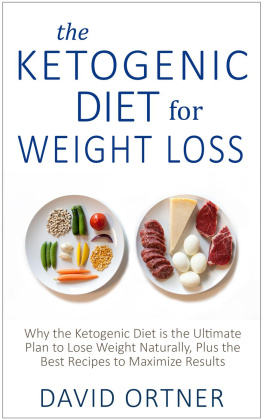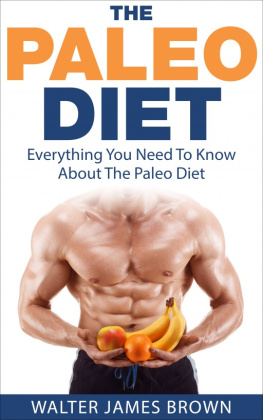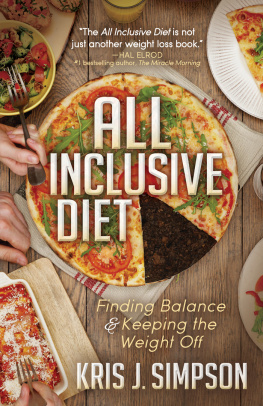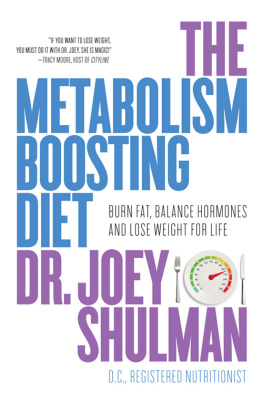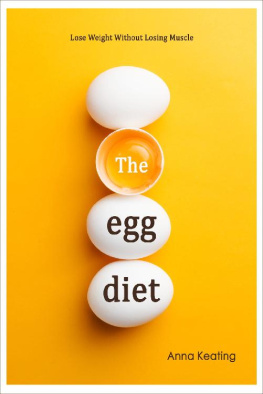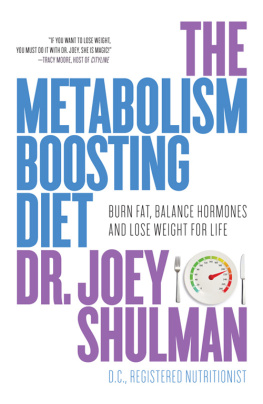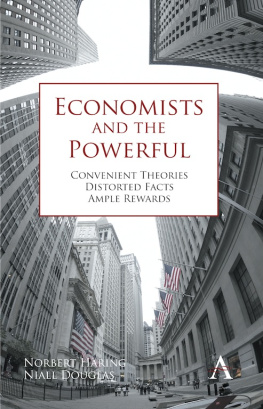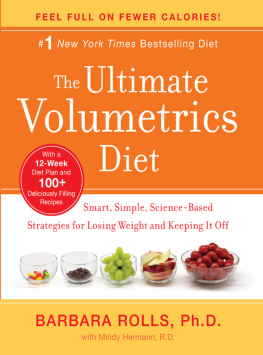For my family, with all my love: Nadia, who has been an endless source of motivation and inspiration, and our children, Faris, Hala, and Cyrus.
C.P.
To my beloved wife, Anne Marie, and our children, George and Ramona.
R.B.
INTRODUCTION
When most people think about economics, they think about interest rates, business planning, or talking heads commenting on monetary policy. But its much more than that: its a science of human decision making that can help you make better food choices and achieve lasting weight loss. As two successful dieters who also happen to be professional economists, we know that key economic principles underpin a set of easy-to-understand behavioral best practiceswhich we call microhabits that will enable you to eat less in a world of constant temptation.
Of course, we expect that to many, the claim that economics provides the solution to our weight gain and obesity epidemic will come as a surprise. But it shouldnt: after all, economics explains why so many people overeat in the first place. As food has become less expensive and more plentiful in the past half century, its become easier to consume more of it. With fewer budgetary constraints to keep our all-too-regular desires to eat in check, the result is an ever-increasing rate of people classified as obese or overweight.
In this environment, its no wonder that so many hopeful dieters become frustrated. For all the information out there about how to lose weight, dieting remains a seemingly unwinnable battle fought against a tsunami of cheap and abundant food. Thousands of books and articles have been written on the subject, and yet 70 percent of Americans are still either overweight or obese. You know the difference between good food and bad food. You know that you are eating and drinking more than you should. You know to avoid burgers and chips in favor of leafy greens and other veggies. You know what to do, but you still dont do it.
And thats exactly why we felt compelled to write this book and share with you our core message: losing weight and keeping it off are far more about behavior than nutrition.
This is, as you have no doubt figured out already, a different kind of diet book. We arent going to delve into the science of weight gain or provide strict meal plans that you must follow if you have any prayer of losing a pound. Were not going to tell you that you should become a vegan or go on a juice cleanse or cut out all foods except kale and coconut water. We are not going to do this because you have likely heard it all before, and yet youre still here. We were there, too. As of January 2018, we have, between us, eighteen years of experience with successful weight loss. Chris lost forty-five pounds over an eighteen-month period starting in 2004 and is, as he writes this, fifty-five pounds below his highest weight. Starting in 2014, Rob lost seventy-five pounds over a similar period and has successfully maintained his weight loss ever since. We might not be nutrition experts, but through our experience, we have developed what we believe is the most pragmatic and effective approach to losing weight, one that you wont find in any other book.
And while you might assume that a diet plan rooted in the principles of economics would favor a lot of jargon or complex analyses, our diet plan is actually quite simple. The plain fact of the matter is that people gain weight by doing one thing and one thing only: eating too much food. While a few rare and incredibly fortunate people may be genetically inclined toward being thin, most slim people arent inherently different from fat people; they are thin because they behave differently. This is obvious from looking at data and trends; we also know it to be true from personal experience.
We, Rob and Chris, met while working at Bloomberg, a leading financial software, data, and media company. We were based in their Washington, DC, office, and our roles involved analyzing the business impact of government actions and regulations. Our careers and related lifestyles presented the same obstacles to healthy living that so many people face today: long days, endless stress, indulgent dinners, and an ample supply of cheap snacks. Outside of work, short of time but with plenty of disposable income, we chose to enjoy ourselves by frequently eating out and eating too much. In the process, we both went from normal to overweight and ended up clinically obese; in Robs case, severely obese. When we finally embarked on our own weight loss journeys, we recognized that we had neither the time nor the inclination to achieve the perfect bodybuilder physique; we just wanted to be healthy again.
We were once fat, but now were not. It hasnt been easy, but losing weight has helped us feel happier, healthier, and generally better, and now we want to share our stories and know-how with you. We hope that by telling you our unique approach to weight loss, you will be able to shed your own poundage and keep it off for good. As you will discover, we are not interested in quick fixes or crash diets that help you to lose weight quickly only to gain it all back once you stop following the program. Extreme diets may sound good, but they areas you probably already know from having tried themdifficult, if not impossible, to follow over the long term. In short, they are unsustainable.
Instead, what we provideallows you to enjoy eating without all the stress of crash dieting.
Rather than subscribing to a particular food plan or program, we lost weight by applying what we know besteconomicsto our waistlines. By carefully considering economic theories, real-world data, and our own personal experiences, we developed behavioral best practices that helped us control our impulses to overeat as well as approach food in a healthier way. For example, we think its time to abandon the idea of eating three square meals a day; and we strongly advocate weighing yourself at the start of each day, for reasons that well soon explain.
Although this book is rooted in economics, we want to emphasize that this is not a theoretical guide to weight loss. It is a practical guide written by two individuals who have achieved lasting weight loss results. We designed the Economists Diet so that anyone can follow it, whether you have a PhD or barely understand the difference between supply and demand.
We know that losing weight is hard, because weve done it. And we know that keeping the weight off can often feel even harder. But we also know that it is possible and that the results are worth the effort. We hope that by reading this book, you will look at weight loss in a whole new light, and by applying our insights and advice to your own life, you will be able to make better decisions, form new habits, and achieve a healthier lifestyle for years to come.
We are rooting for you. If we can do it, so can you.

Fall 2003 220 pounds
Fat and not particularly happy about it.

Fall 2013 250 pounds

Winter 2007/8 174 pounds
Feeling much happier about our weight and our health.


